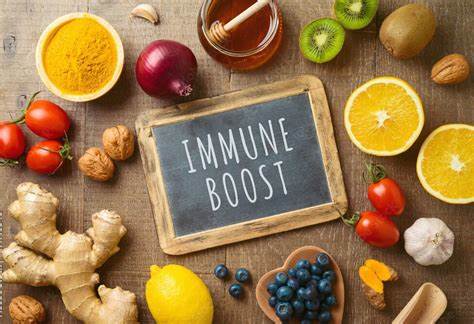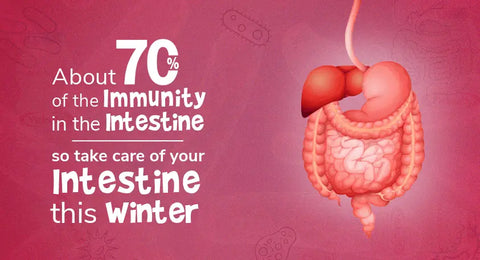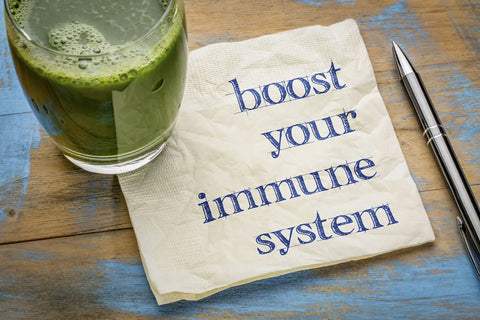Boost Your Immune System with Probiotics
Up to 70% of our immune system resides in the gut, so if we want a healthy immune system, we need healthy guts. We'll share the best probiotics for colds and flu, and how they work to help your immune system.
Note: It takes time to build up the numbers of protective organisms in your digestive track. For best results, start consuming probiotics before cold and flu season gets into full swing.
Best Probiotics for Cold and Flu
Some of the top probiotic strains shown to help for cold, flu and other viral infections include:
- Bacillus species
- Lactobacillus species
- Bifidobacterium species
We want live and active cultures, and/or probiotics in spore form that can make it all the way into the intestinal tract.
Bacillus species are bacterium that form heat resistant spores that survive down into the intestinal tract. They help crowd out bad bacteria, and aid the body in nutrient absorption.
Lactobacillus species produce lactic acid, helping to reduce pH in the gut. As all home canners know, lower pH reduces the risk of bad microbe growth.
Bifidobacterium species live in the intestines and are some of the first bacteria to colonize the gut. They produce lactic and acetic acid, protect the gut lining, and produce antimicrobial chemicals to fight pathogenic bacteria.
These descriptions are simplified to highlight some of the main actions, but you can visit the studies below if you'd like more detailed information.

5 Ways Probiotics for Colds and Flu Help
Studies have shown the effectiveness of specific probiotics. Benefits include:
- Fewer fevers
- Less coughs and runny noses
- Faster recovery
- Less antibiotic use
- Reduced sick leave
We'll share some studies below, but first, let's review the basics of probiotics.
What are probiotics?
Probiotics are beneficial microorganisms similar to the “friendly” microbes found naturally in the body's digestive tract. Where antibiotics aim to fight illness by killing “bad” bacteria, probiotics may help prevent colds and flu by boosting good microbe populations.
A healthy human body contains around 3o trillion human cells, and 39 trillion microbial cells in our microbiome. These microbiome cells include bacteria, fungi, and viruses.
Our microbiome cells are critical to good health, because these little buggers adapt and respond quicker than our human cells can. They cover our skin in a protective layer, and much of our digestive tract. While we start digestion with chewing and stomach acid, the key to proper nutrient absorption is a healthy microbiome.
Yogurt often contains lactobacillus and bifidobacteria species that boost the immune system.
How do probiotics work?
Antibiotics work by killing bacteria, both friendly and unfriendly. Probiotics add good bacteria (and other microbes) to your body.
Adding more probiotic bacteria can crowd out the bad bacteria, at at the very least make it more difficult for them to thrive. Healthy microbes improve nutrient absorption, and strengthen the intestinal lining. They also appear to stimulate the innate immune response of the body.
Probiotics are generally free of side effects, but you should check with your doctor if you are on medication, as they may impact absorption. You should not take probiotics at the same time of day as antibiotics.

Studies Using Probiotic Supplements for Colds and Flu
An 18 month study that examined the effect of probiotics Lactobacillus acidophilus and Bifidobacterium animalis on children aged 3 to 5 showed fewer symptoms, faster recovery time and less antibiotic use.
Specifically:
- the Lactobacillus acidophilus group had 53% fewer fevers, 41% fewer coughs, and 28% fewer runny noses than the placebo group
- the group given both bacteria strains had 72% fewer fevers, 62% fewer coughs, and 59% fewer runny noses than the placebo group
- the Lactobacillus acidophilus group recovered from cold symptoms 32% faster and the two-bacteria group recovered 48% faster than the placebo group, when they did get sick, with less antibiotic use (68% and 84% less, respectively)
A small Swedish study testing Lactobacillus reuteri found that workers using the probiotic reported no sick days, while 33% of the placebo group took sick leave.
Volunteers in a 2018 study received a probiotic drink containing Lactobacillus paracasei and Lactobacillus fermentium. The results indicated that the probiotics were effective in fighting the common cold and preventing respiratory infections.
In a double blind, parallel, placebo controlled study in Mexico, Bacillus coagulans decreased upper respiratory tract infection symptoms and duration in school aged children.
Milk kefir grains contain a variety of Lactobacillus species and Bifidobacterium.
Using Naturally Fermented Foods for Colds and Flu
Commercial probiotics for cold and flu aren't the only options. You can also use naturally fermented foods as a source of good microbes.
Any naturally fermented product (live culture food) that is not heat treated (pasteurized) can introduce good bacteria into your body.
Fermenting at home can provide healthy foods for pennies on the dollar compared to store products. You can also “sneak” probiotics in for fussy eaters by making snacks such as probiotic smoothies.
Making probiotics at home takes a little time, because you need to ferment the food to give the good bacteria time to grow. You need basic kitchen equipment, like glass jars or crocks, to hold the food. Equipment like fermenting weights and airlocks are helpful for preventing contamination.
(These are the fermenting weights that we use for mason jars. Fermenting crocks work well for larger batches of food.)
Some fermented foods, like sauerkraut, start with just vegetables and salt. Other ferments use starter cultures to introduce specific probiotics.
This kombucha SCOBY (symbiotic colony of bacteria and yeast) turns sweet tea into a probiotic beverage.
Some examples of fermented foods and drinks include:
- sauerkraut
- kimchi
- beet kvass
- naturally fermented sodas, wines, and beers
- kombucha
- kefir
- yogurt
We have instructions on the site for making several different fermented foods and beverages on the site. You can see the probiotic recipes here.
You can buy cultures to get started online, and you may be able to find them from friends (kefir grains and kombucha scobys may multiply when you brew). There are also online culture swap groups.
Kombucha Kamp is a reliable source for starter cultures, including scobys and kefir grains.
Which Probiotics are Best?
If you purchase probiotics for colds and flu, make sure you look for live and active cultures. Watch out for brands that are full of sugar and/or artificial ingredients. These work against your body’s ability to heal.
If you are in the middle of an active cold with phlegm production, non-dairy probiotic options are probably a better choice. (Choose fermented vegetables or supplements over yogurt or milk kefir.)
Jetson Health offers a probiotic blend specifically focused on the immune system. It features Lactobacillus and Bifidobacterium strains, along with vitamin C and echinacea extract.






Leave a comment